The senate is going to great lengths to put Hamburg on the lucrative AI map, Michael Westhagemann, President of the Ministry of Economics, Transport and Innovation, stressed during his welcoming speech at the Catholic Academy. "The recognition of Hamburg as one of four model regions for AI start-ups by the German Ministry of Economics and Climate Protection (BMWi) - and the associated funding of EUR 3.8 million shows that the city has the prerequisites." This year's AI Summit is being held as part fAIstival.hamburg under the motto "Understand, develop, apply" to encourage both potential founders and established companies to use the technology. To this end, a periodic table of AI was presented during the "Artificial Intelligence - What do I need to know and is AI always useful?" session. Developed by Bitkom e.V., this modular principle helps companies apply AI to business procedures, rate market maturity, assess expenditure, the required machine training and the knowledge and experience of employees.
The security, reliability and responsibility of artificial intelligence are gaining more significance en route to even smarter offices, factories and homes. Users' needs are growing proportionate to the emergence of ever more intelligent systems. During his keynote at the AI Summit Hamburg 2022 on Monday (August 30, 2022) Dr Lars Reger, CTO of NXP Semiconductors, focused on these very aspects. Those who can come up with clever solutions are moving in a lucrative business environment, he noted, adding: "Embedding AI systems in hacking security is a big market."
Putting Hamburg on global AI map
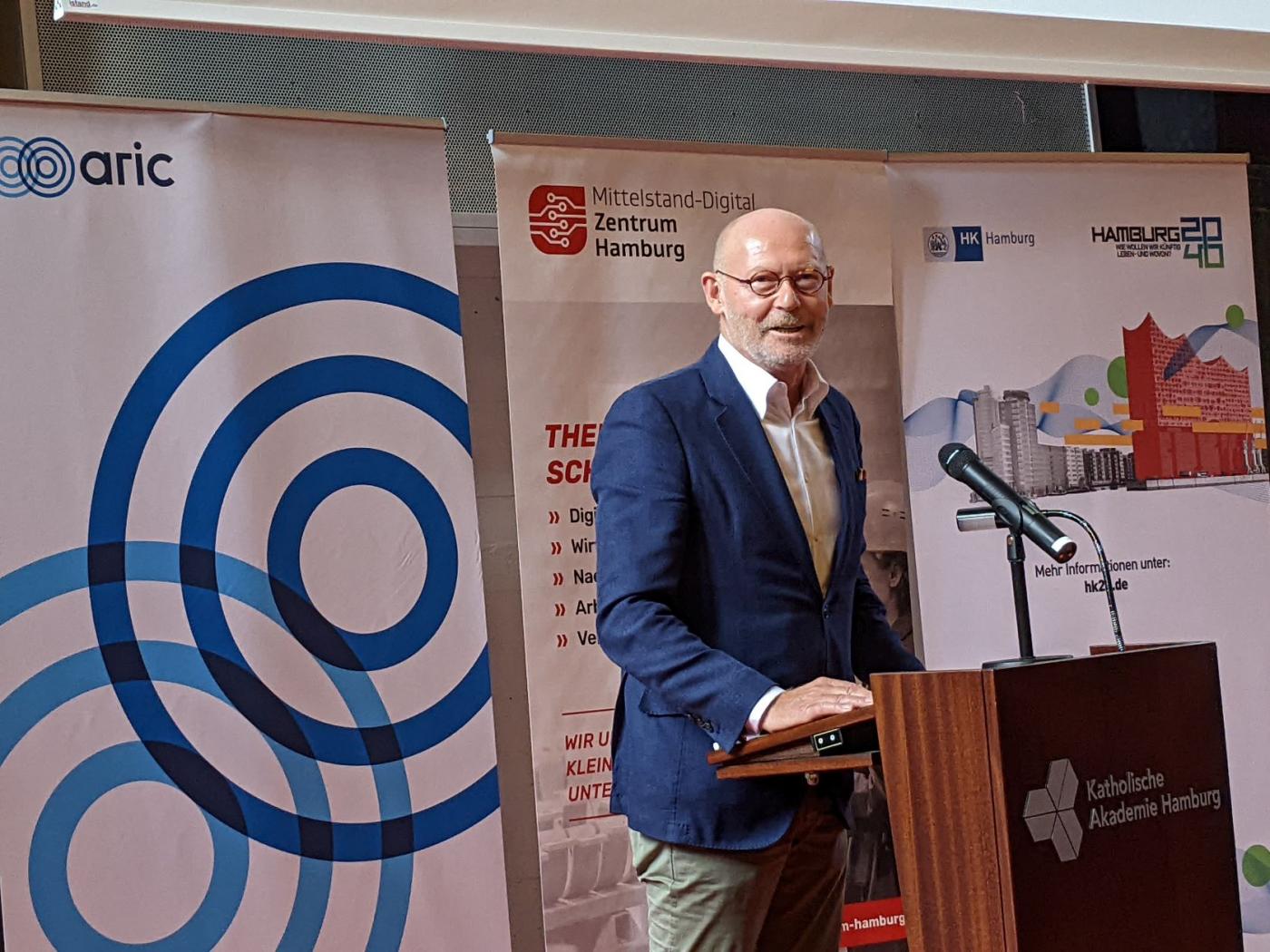
Be brave - just try out AI
Medium-size companies frequently hesitate to use the new technology, according to Dr. Susan Wegner, Vice President Artificial Intelligence & Data Analytics at Lufthansa Industry Solutions. Companies and their employees should be more courageous and simply try out AI in first use cases. "But do your homework first. You have to clarify your data situation before developoing a successful business model. Where does the data come from? Is the quality right? Who can access it and when?" And Dr Michaela Regneri, Managing Director of House of Computing and Data Science (HCDS) at the University of Hamburg, pointed out: "Developing an AI application must be a collaborative project. All the stakeholders involved must be permanently included in the process. That costs time, money and sometimes nerves, but it ensures success."
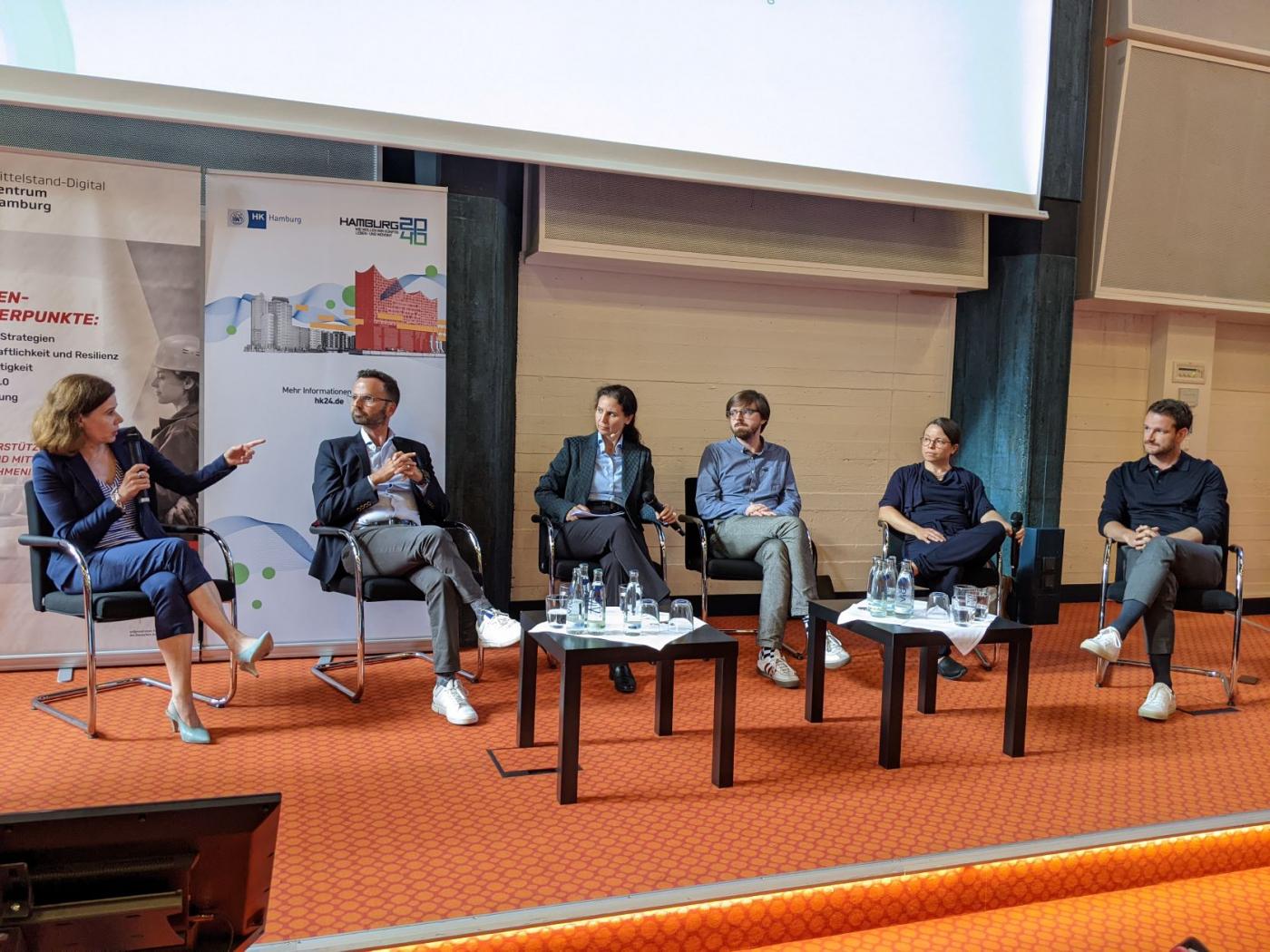
European approach to regulating AI
The field of Responsible AI is crucial to the success of the technology, the experts agreed. Commenting on the European approach to regulating AI, Hendrik Reese, a partner at PwC, said: "We must strengthen trust in AI applications." That includes fairness, transparency, data security and robustness of the systems. "Compliance with the various criteria is by no means just an act of altruism. Secure systems also ensure the economic viability of the application," said Professor Frank Passing, CEO of Intuitive AI.
Great momentum in AI ecosystem
AI is developing "very well" in the Hamburg Metropolitan Region, said Alois Krtil, Managing Director of the Artificial Intelligence Center (ARIC). "The AI ecosystem in northern Germany is growing dynamically." Autonomous maintenance robots in aviation, assistance systems in healthcare and new tools for urban planning are just some of many examples. "Think of swarms of drones that can detect damaged parts of bridges or co-ordinate evacuation routes in the event of disasters." The ITS World Congress has shown how AI can literally be put on the road. Multimodal AI models hold huge potential and are real all-rounders: "AI models are being developed that not only master a single task, but that can cope with a multitude of requirements through relatively simple retraining. That development opens up all kind of new possibilities," he noted.
ys/sb/pb
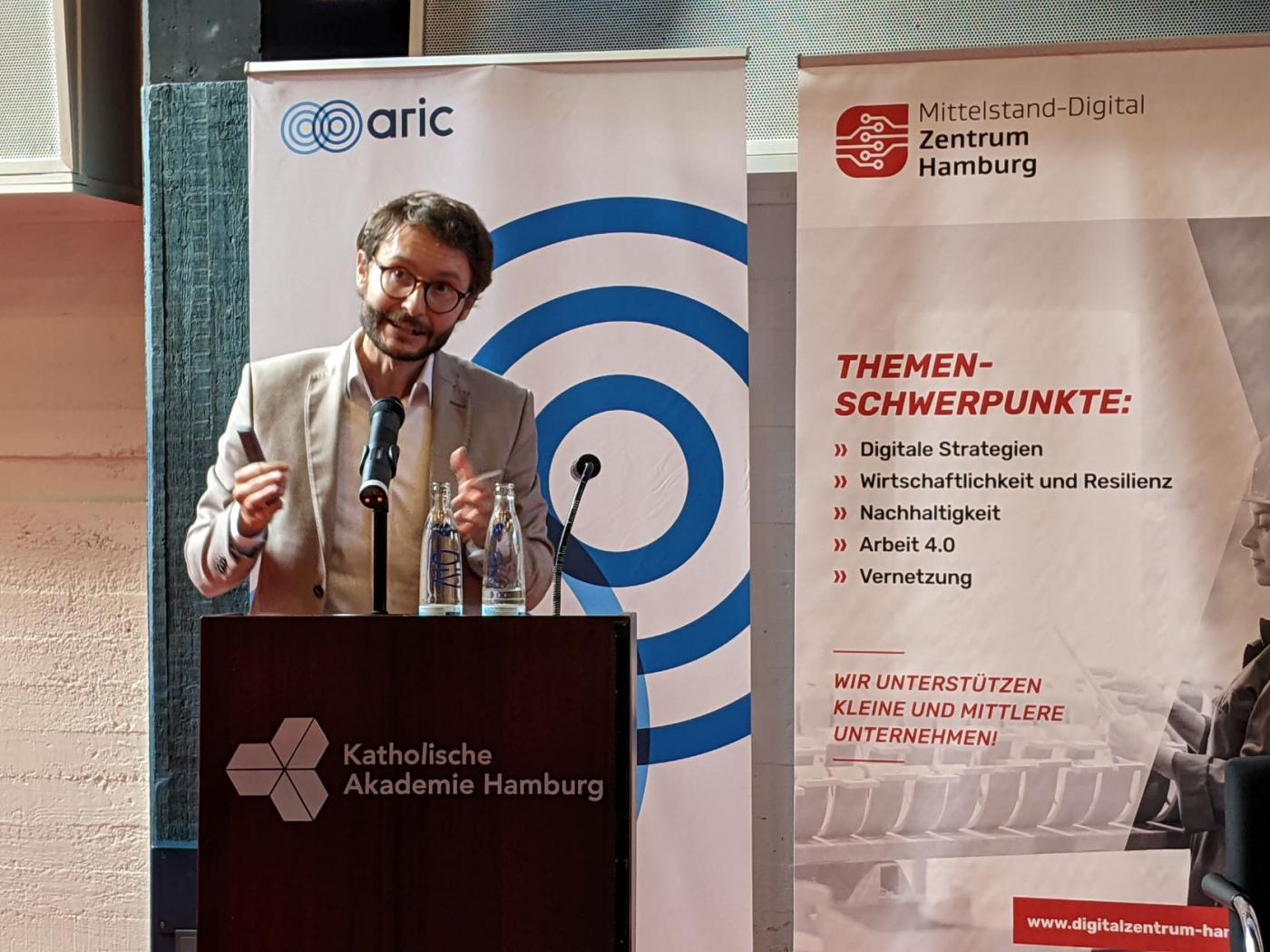
Sources and further information
More
Similar articles
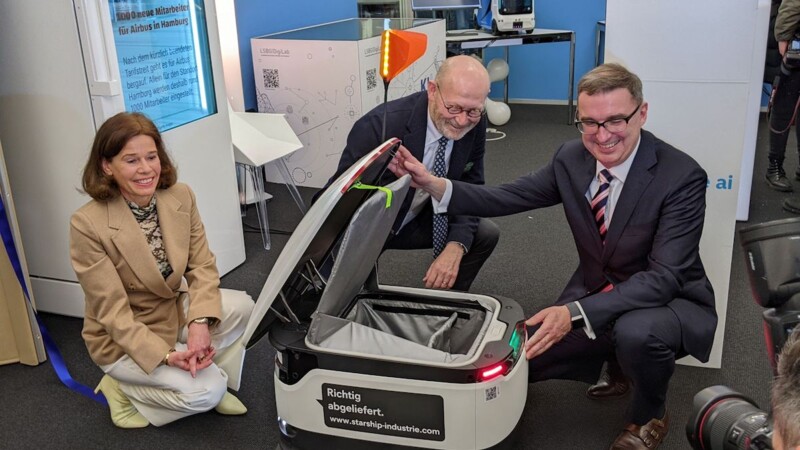
Showroom for artificial intelligence opens in Hamburg
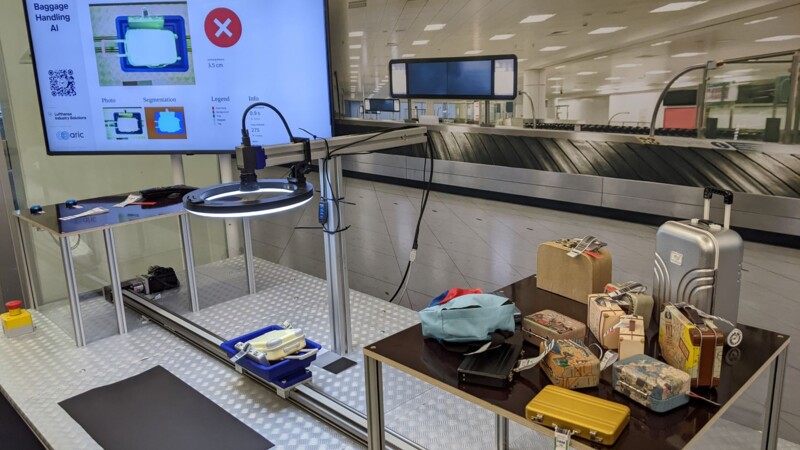
Smoother airport operations thanks to artificial intelligence

